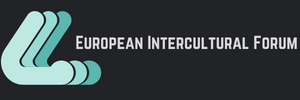In a world of ever-increasing regulations and heightened scrutiny, the importance of compliance cannot be overstated. Whether you’re a small startup or an established corporate giant, safeguarding your business reputation and success hinges on maintaining uncompromising adherence to laws, standards, and ethical practices. Compliance isn’t just about ticking off boxes, it’s the secret ingredient that fortifies trust with stakeholders, prevents costly legal repercussions, and sets you apart from competitors in today’s competitive market. So strap yourself in as we delve into why compliance matters more than ever before.
Avoiding Investigation
In the fast-paced world of business, the last thing any organization wants is to become entangled in an investigation. Investigations are like a dark cloud looming over a company’s reputation, casting doubt and suspicion on its practices, ethics, and overall integrity. They have a way of unraveling carefully crafted narratives built around success, efficiency, and trustworthiness.
When it comes to avoiding investigations, prevention truly is worth more than cure. It requires embracing compliance as not just another corporate buzzword but rather as an integral part of everyday operations. By establishing robust compliance measures from day one and embedding them deep within organizational culture, businesses can create a solid shield against potential investigations.
But what are these compliance measures? Compliance lies beyond simply following legal regulations; it involves creating ethical standards that permeate every corner of your enterprise. From transparent financial reporting to thorough employee training programs and robust internal controls – adherence to these principles will serve as your armor in times when regulatory scrutiny threatens. Certain industries will require certain measures in place; this post over on Merchantscout covers how those in the adult industry can make sure that their payments are not taken down and they are protecting themselves and those working for them.
Organizations need to recognize that avoiding investigations isn’t only about safeguarding reputation or ensuring success; it goes deeper than that. It’s about fostering a culture where compliance becomes second nature, an instinct, and a unified effort towards maintaining high ethical standards.
Keeping a Safe Environment
Compliance is critical for maintaining safe and ethical operations across industries. It provides a sense of faith and trust to the dual audience of businesses – the stakeholders and the customers. In manufacturing, there are strict regulations around facility safety to protect workers. This includes proper machine guarding, electrical safety measures, employee training, and the use of personal protective equipment.
Compliance helps reduce risks by ensuring equipment is routinely inspected and well-maintained. For example, in industries that use high-pressure hoses, compliance means installing adequate hose shielding to contain leaks or bursts. Adhering to fire codes and chemical storage rules also prevents accidents. By making worker safety a priority through compliance, manufacturers create a culture of accountability.
Similarly, in healthcare, compliance with cleanliness standards is crucial. Hospitals and clinics must follow strict protocols around disinfection and sanitization, carrying out regular medical office cleaning in Saint Paul, MN, or elsewhere. This prevents the spread of illness and infections among patients and staff. Proper waste disposal and sterilization of instruments are also enforced through healthcare compliance regulations. When facilities demonstrate diligent adherence to these guidelines, it creates public trust in their services.
This fosters an environment where employees feel valued, and in turn, helps attract and retain talented staff. Overall, compliance provides a framework for businesses to operate responsibly and profitably while safeguarding employee and public wellbeing.
Gives Customers Confidence
In a world where trust is often a scarce commodity, businesses that prioritize compliance hold an invaluable advantage – they inspire confidence among their customers. A company’s commitment to adhering to regulations and ethical standards demonstrates its dedication to operating with transparency and integrity. When customers see that a business willingly undergoes compliance measures, it conveys a message of accountability and reliability.
Compliance serves as an assurance, assuaging any doubts in the minds of consumers about the safety and legitimacy of products or services offered. By being compliant, organizations prove that they have nothing to hide, creating an environment built on trust rather than suspicion.
Moreover, ensuring compliance also means safeguarding customer data from potential breaches or misuse. In today’s digital era where cyber threats loom large at every corner, customers are increasingly wary about sharing personal information with companies lacking stringent security measures. Compliance provides peace of mind for individuals entrusting their data to businesses by guaranteeing robust protection protocols.
Ultimately, giving customers confidence through compliance establishes long-lasting relationships based on trust and reliability. It becomes more than just selling products; it becomes delivering on promises while putting the interests and well-being of consumers first.
How To Develop An Effective Compliance Program
Creating a robust compliance program is vital for businesses in today’s complex regulatory landscape. It not only safeguards your organization’s reputation but also ensures sustained success in the long run. But where do you start when embarking on this journey to foster a culture of compliance?
Firstly, it is crucial to understand that an effective compliance program goes beyond mere box-ticking exercises. It involves ingraining ethical behavior and adherence to laws into the very fabric of your business operations. Begin by conducting a thorough risk assessment to identify areas vulnerable to non-compliance risks and prioritize them accordingly.
To establish such a program, it’s crucial to address each aspect of compliance individually. For instance, to maintain a drug-neutral environment, employers can implement specific rules for employees. They can also find DOT training for supervisors on WorkTraining.com or similar courses elsewhere and enroll supervisors, which can help them conduct regular drug testing and take necessary actions if any violations are found. Similar to drug testing, employers can implement policies and procedures to ensure compliance with other aspects such as workplace safety, confidentiality, and anti-discrimination laws.
Likewise, they could seek inspiration from the blog section of firms like Green Facilities that specialize in cleaning to learn the steps involved in conducting a cleaning risk assessment, ensuring the safety and well-being of cleaning staff. Taking this approach is vital in maintaining a workplace that aligns with the highest standards of cleanliness, safety, and overall compliance.
Once potential vulnerabilities are identified, establish clear policies and procedures that address those risks comprehensively while remaining adaptable to evolving regulations. Communication channels must be established across all levels of the organization to ensure everyone understands their responsibilities and obligations.
Training is another key aspect highlighting its importance by keeping employees well-informed about relevant laws, industry standards, and internal policies. Regular monitoring should also be implemented through audits or technology tools that allow for ongoing evaluation of adherence.
In addition, fostering a transparent reporting structure that encourages employees to voice concerns without fear of repercussions bolsters both compliance efforts and overall business integrity.
Remember, building an effective compliance program requires dedication, commitment from leadership down, and regular reassessment as new challenges emerge, ultimately strengthening your organization’s resilience against reputation-damaging violations.
An Ongoing Process
Compliance is not a one-time task; it’s an ongoing process that demands constant attention, adaptation, and improvement. In today’s dynamic business landscape, where rules and regulations are ever-evolving, organizations must strive to stay ahead of the curve. The journey towards maintaining compliance is akin to navigating a complex labyrinth – you need both patience and perseverance.
Businesses that recognize compliance as an ongoing process gain a significant competitive edge. They understand that adhering to legal obligations goes beyond mitigating risks; it builds trust with customers and stakeholders alike. Just like tending to a garden requires continuous nurturing, cultivating compliance within your organization fosters resilience against external threats while nurturing internal growth.
While achieving initial compliance may seem daunting enough, sustaining it long-term poses even greater challenges. Your business landscape will change: new laws will be passed, regulatory frameworks will evolve rapidly, keeping up becomes crucial for survival in this unpredictable world we live in.
Embracing the mindset of an ongoing process enables businesses not only to reactively comply with legal requirements but also proactively adapt their operations accordingly. It encourages leaders to foster a culture of accountability throughout all levels of the organization, from boardrooms to frontlines, ensuring everyone understands their role in safeguarding the company’s reputation and success.
Conclusion
Compliance matters when it comes to protecting the reputation of your business and ensuring its success. It’s important to be aware of the regulations that you must abide by in order to operate within your industry, as well as those that revolve around core safety issues such as fire prevention, data protection and privacy. By maintaining compliance with all applicable laws and regulations, businesses will be well-positioned for long-term success.


